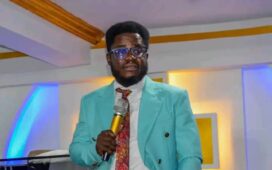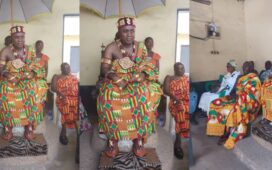[ads1]
Zimbabwe’s first post-independence leader, Robert Mugabe has died aged 95 as reported by the BBC.
His family confirmed his death to the BBC. Mr. Mugabe had been receiving treatment in a hospital in Singapore since April.
Mr. Mugabe was ousted in a military coup in 2017 after 37 years in power.
Mr. Mugabe’s early years were praised for broadening access to health and education for the black majority – but his later years were marked by rights abuses and corruption.
He won Zimbabwe’s first election after it secured independence from the UK, becoming prime minister in 1980.
He abolished the office in 1987, becoming president instead.
Background
Robert Mugabe was born on February 21, 1924, in Kutama, Southern Rhodesia (now Zimbabwe). In 1963, he founded ZANU, a resistance movement against British colonial rule. Mugabe became prime minister of the new Republic of Zimbabwe after British rule ended in 1980, and he assumed the role of president seven years later. Mugabe retained a strong grip on power, through controversial elections, until he was forced to resign in November 2017, at age 93.
Younger Years and Education Robert Gabriel Mugabe was born on February 21, 1924, in Kutama, Southern Rhodesia (now Zimbabwe), just months after Southern Rhodesia had become a British Crown colony. As a result, the people of his village were oppressed by new laws and faced limitations to their education and job opportunities.
Mugabe’s father was a carpenter. He went to work at a Jesuit mission in South Africa when Mugabe was just a boy, and mysteriously never came home. Mugabe’s mother, a teacher, was left to bring up Mugabe and his three siblings on her own. As a child, Mugabe helped out by tending the family’s cows and making money through odd jobs.
Although many people in Southern Rhodesia went only as far as grammar school, Mugabe was fortunate enough to receive a good education. He attended school at the local Jesuit mission under the supervision of school director Father O’Hea. A powerful influence on the boy, O’Hea taught Mugabe that all people should be treated equally and educated to the fulfillment of their abilities. Mugabe’s teachers, who called him “a clever lad,” were early to recognize his abilities as considerable.
[ads2]
The values that O’Hea imparted to his students resonated with Mugabe, prompting him to pass them on by becoming a teacher himself. Over the course of nine years, he studied privately while teaching at a number of mission schools in Southern Rhodesia. Mugabe continued his education at the University of Fort Hare in South Africa, graduating with a Bachelor of Arts degree in history and English in 1951. Mugabe then returned to his hometown to teach there. By 1953, he had earned his Bachelor of Education degree through correspondence courses.







